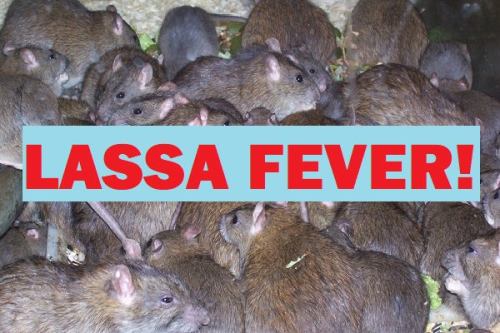The Kaduna State Government has confirmed five deaths following the Lassa fever outbreak in the state.
She said that an initial six samples were collected to confirm the outbreak, followed by another six samples from contacts, which were sent to Bayero University, Kano, for analysis, “with a 24-28 hours turnaround time for the result.”
She indicated that the index case was a 26-year-old youth Corps member who took ill on February 9, presented at the 44 Army Reference Hospital, Kaduna, and died on February 20.
“Symptoms presented included fever, headache, convulsion and bleeding. Thereafter, a total of 32 suspected cases were line-listed and samples collected. Six cases were confirmed positive, with five deaths and a male-female ratio of 1:1.
“The result also showed five were negative, while 21 results are being awaited.”
According to the report, 99 contacts have so far been line-listed and were being followed up, adding that 19 others also developed some form of symptoms and their samples were collected.
The commissioner said that the state government had so far taken some measures to combat the outbreak of the disease.
She listed the deployment of state and local government areas’ Rapid Response Team, and activation of Incident Management System at the Infectious Disease Hospital, Mando, Kaduna.
Other measures are: active case search, contact tracing, follow up, risk communication activity and media management, as well as the supply of drugs and consumables to the 44 Army Reference Hospital and the IDH, Mando.
Some other measures taken, Ahmed said, were the supply of rodent equipment by the Nigeria Centre for Disease Control (NCDC), as well as interventions for rodent control by a team from the Federal Ministry of Environment, in collaboration with the state team.
She listed challenges encountered in combating the spread of the disease to include late presentation of patients to hospital, poor adherence to infection prevention control in health facilities and non-adherence to the use of triage points.
She reiterated the state government’s determination to intensify surveillance at all levels, as well as follow-ups on listed contacts.











